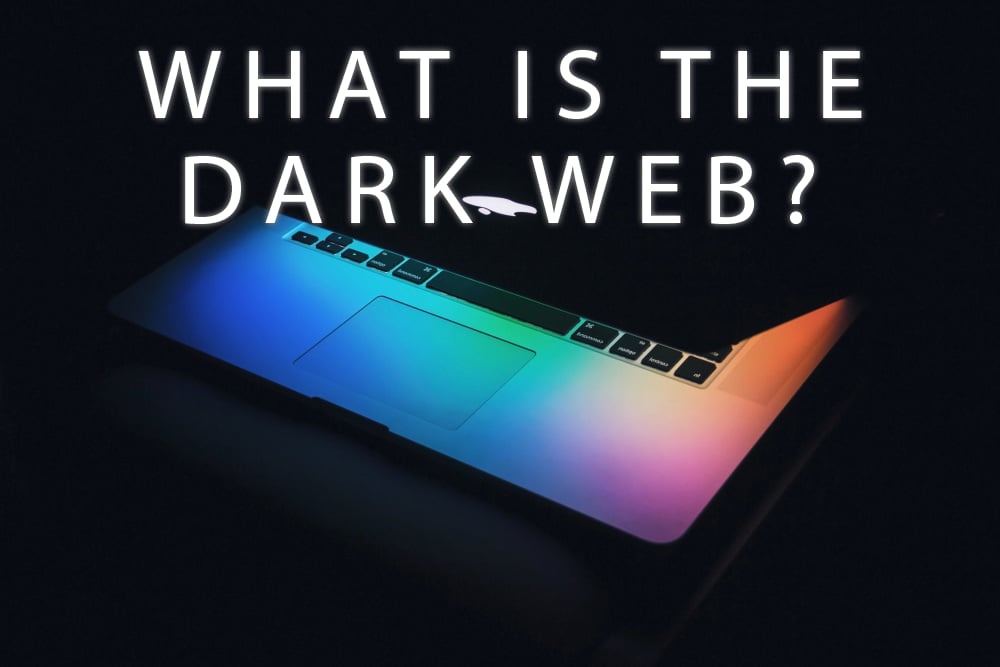The Surface Web is only 10% of the total size of the Internet. All sites on the surface web are indexed by search engines and are easily accessible. Examples of the surface web are Facebook, Twitter, YouTube, etc. The Deep Web and Dark Web contain the other 90% of the Internet.
The Deep Web includes: Non-public databases, password protected sites, torrent sites, private discussion forums.
The Dark Web includes: Black Markets, Botnets, Terrorists, Hoaxers, Hackers, Fraudsters, Phishing, Hitmen, Pornography (mostly illegal), and more…

“Bad guys” use the Dark Web to sell goods and services to make money. Here is a sample of how much they make:
- Fake Facebook account with 15 friends: $1.00
- Your Medical Records: $50+
- Your Credit Card details: $0.25-$60
- Your Banking Details: $1,000+

So how does one get to the Dark Web? The answer by using a special web browser freely available for download called “Tor”. However, instead of using a web address that ends in .com, .org, .net, etc. you use an address that looks like this:
“http://3g2ipfel2j43nkr3m.onion”
The number and letter combination is a randomly generated hostname or hidden service. The “.onion” is a domain suffix that is only reachable via Tor (an acronym for “The Onion Router” — hence, the “.onion” domain suffix). The purpose of Tor is to anonymize the communications of the people who access web sites in the .onion Internet domain. The Tor Project, Inc. is a not-for-profit organization dedicated to developing and propagating the Tor technology. So what is the purpose of Tor?

Tor, like many things in life, is a double-edged sword. True, it’s used by “scum and villainy” to sell illegal narcotics, child pornography, and contract killing. However, it’s also used by political dissidents in repressive regimes such as Iran, Cuba, China, and Russia to organize protests and agitate for change in those regimes. It’s also used by ordinary people who simply want to try to remain anonymous online without having every aspect of their surfing habits sold by large Internet conglomerates. The latter is the true intent of Tor. From The Tor Project web site:
Tor is free software and an open network that helps you defend against traffic analysis, a form of network surveillance that threatens personal freedom and privacy, confidential business activities and relationships, and state security.
The good news is that law enforcement and the US intelligence community has had some success in peeling back the anonymity of the Tor onion and caught several purveyors of downright awful stuff. And sometimes they just get plain lucky. That’s also the bad news because those that use Tor for benign web surfing or to agitate for political freedom also risk their identities being compromised.
With respect to cyber security more directly, Dark Web marketplaces exist to sell the treasure trove of information that hackers siphon out of companies such as Social Security Numbers, credit card information, identities, and compromised user IDs and password pairs. There are also marketplaces that sell hacking toolkits, hacking services for hire, and undisclosed software vulnerabilities called “zero day vulnerabilities”. Why are they called “zero day vulnerabilities”? Well, because the world has literally zero days to secure their systems before the vulnerability is disclosed and being used actively to attack…well…whatever targets help them advance the attacker’s geopolitical and/or financial goals.
Companies such as Risk Based Security and IntSights are giving the rest of us a fighting chance at protecting ourselves through their monitoring of the Deep Web and Dark Web for threats and vulnerabilities that we would otherwise not know about until it’s too late.
In the meantime, best to stay away from dark web marketplaces and stick to regular web sites (your kids too).

One last thing about Tor. It’s slow. Really, really slow, even on a fast Internet connection. Without getting into the technical details, the way it’s designed makes it inherently slow. So it’s really bad for general purpose web surfing. So again, unless you’re super committed to your anonymity online, there are other ways to protect your privacy online such as VPNs and privacy-focused web browsers that will provide a much more pleasant experience. But we can get into those in another post.
